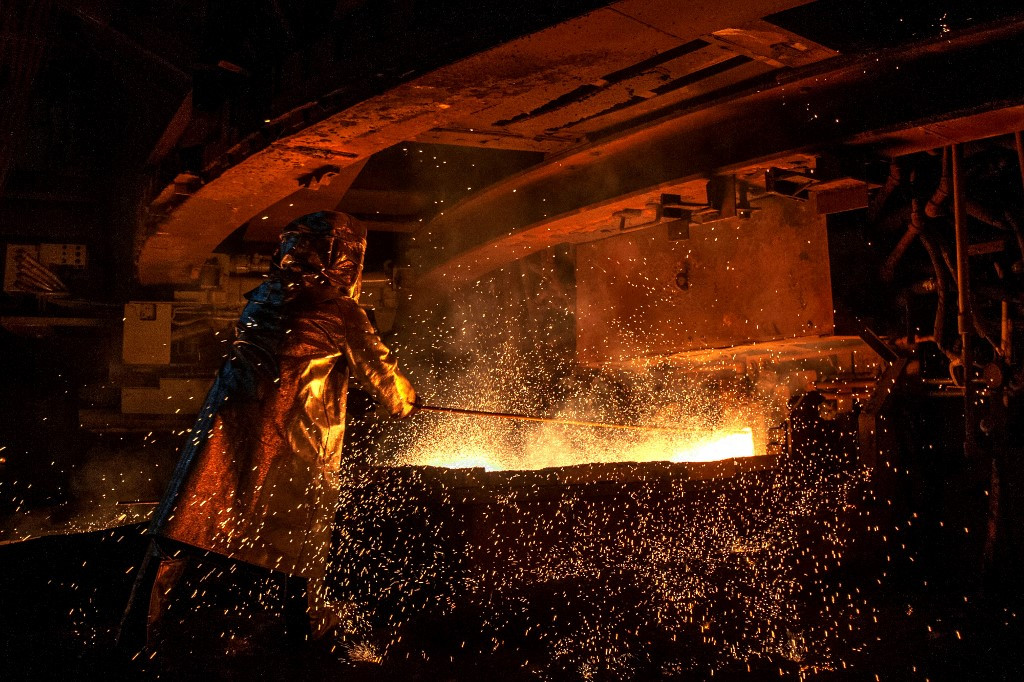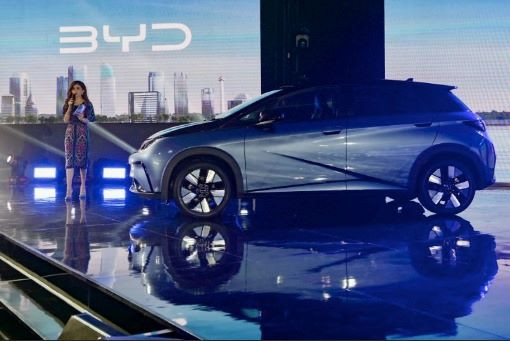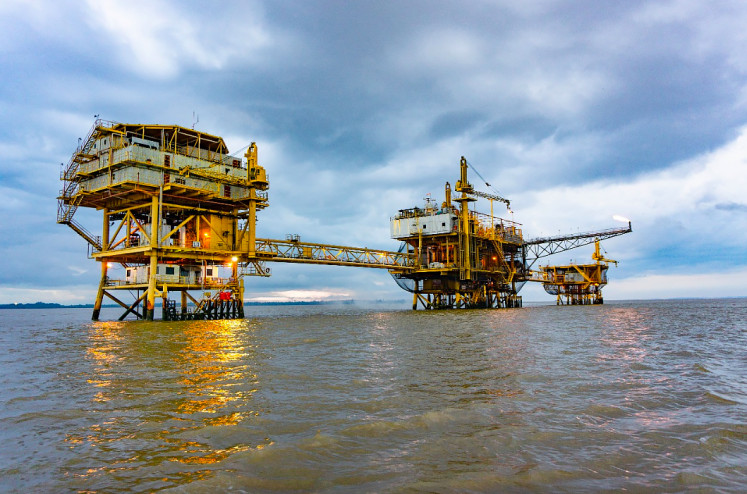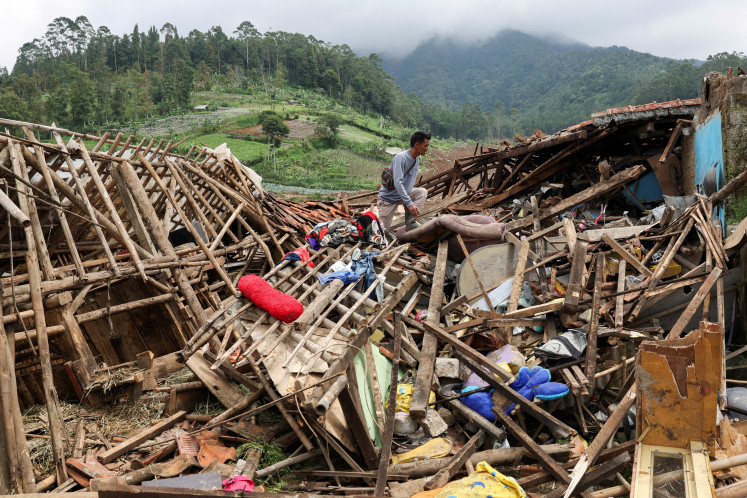Popular Reads
Top Results
Can't find what you're looking for?
View all search resultsPopular Reads
Top Results
Can't find what you're looking for?
View all search resultsChina may be hindrance in RI getting FTA with US on critical minerals
Indonesia being able to secure a limited free trade agreement (FTA) with the United States would require the world’s largest nickel producer to review China’s wide-reaching investments in the critical metals sector, analyst says.
Change text size
Gift Premium Articles
to Anyone
S
ecuring a limited free trade agreement (FTA) to reap the benefits of United States subsidies on electric vehicles (EVs) is expected to be a tough task for Indonesia as the country has leaned toward China in wide-reaching investments to develop its critical minerals.
The US has issued new guidance for a US$7,500 EV consumer tax credit under the Inflation Reduction Act (IRA), but with a couple of strings attached.
Getting half of the credit requires a threshold percentage of the battery’s critical minerals to be extracted or processed in a country that has an FTA with the US. The other half requires a threshold percentage of battery components to be manufactured or assembled in North America.
Indonesian businesses have responded to the policy with concern, as EV batteries produced using critical Indonesian minerals will likely be ineligible for the tax credits as the country does not have an FTA with the US.
Arya Rizqi Darsono, head of the Indonesian Chamber of Commerce and Industry’s (Kadin) coal and mineral committee, told The Jakarta Post on Wednesday that domestically produced EVs and batteries would see difficulties surviving in the US market without the tax credit.
“On the one hand, our products would be less competitive, while the US market would be left with not so many choices for battery and EV manufacturers,” he said. “We hope the Indonesian government can immediately resolve this problem with the US government.”
Read also: Indonesia to propose limited free trade deal with US on critical minerals
Indonesia is the world’s largest nickel producer and the commodity has become increasingly important in the EV battery supply chain. The country has made a huge effort to leverage its nickel reserves to bring in investment from EV and battery producers.
The Coordinating Maritime Affairs Minister Luhut Binsar Panjaitan told reporters on Monday that the government would propose an FTA for some minerals shipped to the US.
The move would be taken to ensure EV supply-chain firms in the country can benefit from the tax credit under the IRA.
Septian Hario Seto, undersecretary at the office of the coordinating minister, added on Monday that the limited FTA would probably be similar to the one the US had signed with Japan for the critical mineral trade on March.
Aside from nickel, it will include aluminum, cobalt, copper and many other minerals, he said.
Ahmad Zuhdi Dwi Kusuma, an industry and area analyst at state-owned Bank Mandiri, told the Post on Wednesday that getting the FTA would be challenging, arguing the US is worried about China’s dominance in the country’s nickel industry-investment scene via joint ventures and mine co-ownership.
“Indonesia would need to review the existing investment mix in the critical metals industry,” he said.
In addition, Indonesia also needs to assure the US regarding its reserves and sustainability aspects, as whether the country can fulfil those will be crucial to its chances of securing the limited free trade deal, he said.
Read also: Two nickel IPOs this month point to downstream industry potential
Indonesia’s nickel sector is “heavily dominated” by Chinese companies and their investments have had a sizeable role in helping the country develop its downstream nickel industry.
Since Indonesia banned exports of nickel ore in 2020, many Chinese companies have invested in refining facilities, including high-pressure acid leach (HPAL) plants that produce mixed hydroxide precipitate, a material extracted from nickel ore used in EV batteries.
Investment Ministry data show China ranked the second-largest source of foreign direct investment in the country last year.
Contemporary Amperex Technology, a Tesla supplier and the world’s largest EV battery manufacturer, for instance, has partnered with Indonesia’s state-owned companies and invested around $6 billion in six planned battery projects.
To remain eligible for the tax credit, the IRA also requires EVs in the US market not to have battery components manufactured or assembled; and not contain critical minerals extracted, processed or recycled by a “foreign entity of concern", with the former taking effect next year and the latter a year after.
Experts have suggested the foreign entity mentioned refers mostly to China, as it dominates much of the EV supply chain and the US wants to shift away from that position.
Arsjad Rasjid, the chairman of Kadin, in a statement on March 28 called on the US to be fair to Indonesia. He argued that the country could play a major role in supplying the US with the EVs and batteries it needed to step up its clean energy agenda.
Therefore, he hoped the US would choose to grant Indonesia along with other members of the Indo-Pacific Economic Framework (IPEF) equivalent status to those countries with full FTAs with the US.
Shinta Kamdani, deputy chair of the Indonesia Employers Association (Apindo) told the Post on April 4 that Indonesia cannot reject investment from other countries, arguing the country needs to develop its industry at a fast pace, even if this does involve China, which happens to be able to act quick on its investment decisions with regard to many critical minerals in Indonesia.
“We can’t just depend on one country. We need to diversify as well. It is not possible to expect investment only from a single country,” Shinta said.










